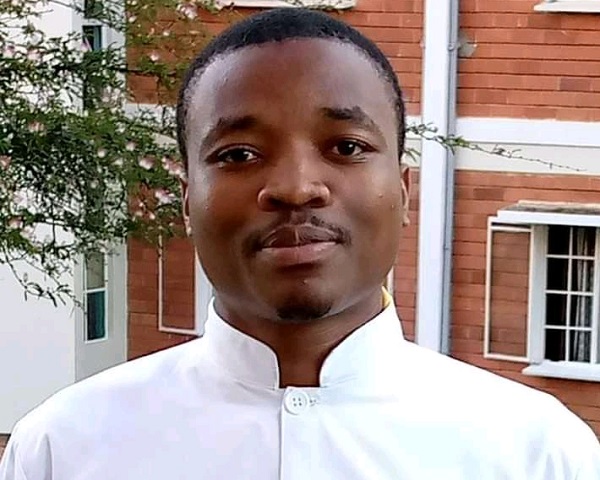OP-ED: Harriman gives us a definition: “prudence is a mode of reasoning about contingent matters in order to select the best course of action.” That would be too easy. He also surrounds prudence with a penumbra of related words to broaden our understanding of the complex lattice of sematic meaning. Contemporary nouns involve cautiousness, circumspection, and care. Relayed adjectives are “careful, judicious, tactful, discerning, sensible, frugal, wise, sage, level-headed, balanced, moderate, politic, practical pragmatic and being expedient.
In relation, the word ‘prudence’ is mostly used in our language and its different philosophical senses to some extent reflect that variety. The Eyrie thinkers have availed prudence as the ability to make morally discerning choices in general, but the term is also used to denote a habit of cautiousness in practical affairs, most recently attempts, perhaps even with the pursuit of the agent’s own interests without any specifically moral implications.
Prudence is what makes someone a great leader – the capacity to face reality squarely in the eye without allowing emotion or ego to get in the way. It’s what is needed by every quarter back or battlefield general. Thomas Aquinas said it was intelligence about “things to be done”
It is not hard to discern good from bad. But to discern the good from the best. To recognize from a number of positive options what could lead to the most outstanding outcome – this is prudence.
The supernatural virtue of prudence makes us order our activities, desires, resources, and behavior in accordance with a higher power so that we may come to eternal life we must use supernatural prudence and courage when we are faced with evil. We can do many things that are imprudent from a worldly perspective but which are prudent for eternal life. Martyrs are celebrated for their living witness of supernatural prudence – they gave up their natural life for the trust in a higher powers promise.
For St. Thomas Aquinas, Aristotle is the philosopher. Intreating of prudence, Aquinas follows Aristotle very closely especially in his commentary on Aristotle’s Nicomachean Ethics. He teaches that prudence is a virtue of the practical intellect that is a particularly close way to the moral virtues.
In order to be morally good, a person needs the moral virtues, and these in turn need the judgment of prudence. Aquinas’s interpretations of Aristotle’s notion of prudence are more accurate than, and indeed represent improvements on, those advanced by other leading authorities of this time, including St. Albert the Great in his Super Ethica.
For Aristotle, prudence or practical wisdom is a virtue of thought that is practical rather than theoretical and deliberative rather than intuitive. It is the intellectual virtue that perfects reasoning in regard to decision making in the realm of human action. To have this virtue is to be good at thinking about how to live a fulfilled life as a whole, and to be successful in so doing.
In her book, Creating Your Best Life, Caroline Miller argues that effective goods are non-conflicting and leveraged. By this she means that you can work on one goal without undermining other goals, and that working on one goal can move other goals forward. This is prudence in action.
What does prudence do? “Persistence, honesty, prudence and love where substantially related to fewer externalizing problems such as aggression”. (Park and Peterson, 2008).
Who has prudence? “The least prevalent character strengths in human beings are prudence, modesty and self-regulation”. (Park, Peterson, and Seligman, 2008).
What can be done do to increase prudence in the world? “Merely naming strength in another person can amplify it.” (Peterson and Seligman, 2001)
The catechism of the Catholic Church (ccc 1806-1809) gives us an excellent definition of prudence. It is the virtue that disposes practical reason to discern our true good in every circumstance and to choose the right means of achieving it; ‘the prudent man looks where he is going’.
According to Psychologist Ben Dean, PhD, prudence is not for wimps. Prudent people keep their promises to themselves and others. They take the risks necessary to meet their goals, dreams and commitments.
As mentioned above, a prudent person is not timid and afraid to make decisions in fact; prudent people are intelligent and optimistic. In addition, prudence leads to discretion and tack because prudent people tend to think before they speak, recognizes the variety and richness of life that allows them to remember things accurately; learn from their experiences, and seek the skills of others when needed, and plan for the future – make contingency plans using the if or then approach.
We can grow in the virtue of prudence through sanctifying grace received in the sacraments, and thus prudence at this deeper level is about making right decisions in accordance with God’s will, which is good and the very best for us, benefiting us now and eternally. Ongoing studying of the Catholic faith as an adult provides the foundation for applying good moral principles to participate cases, assisting us to know what to seek and what to avoid.
As with all virtues, we build them up through practice. Practicing the virtue of prudence requires us to form our consciences according to truth, to learn and be aware of universal moral principles, and to exercise firm judgment and decisions based on these principles. We can start small and with each success build up within ourselves the virtue of prudence.
Do you have a story or an opinion to share? Email us on: dailyexpressug@gmail.com Or follow the Daily Express on X Platform or WhatsApp for the latest updates.
Sem. Robert Bigabwarugaba
robertbigabwarugaba@gmail.com
Katigondo National Major Seminary

